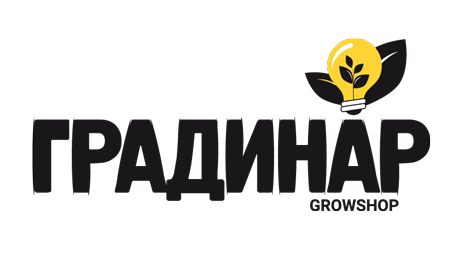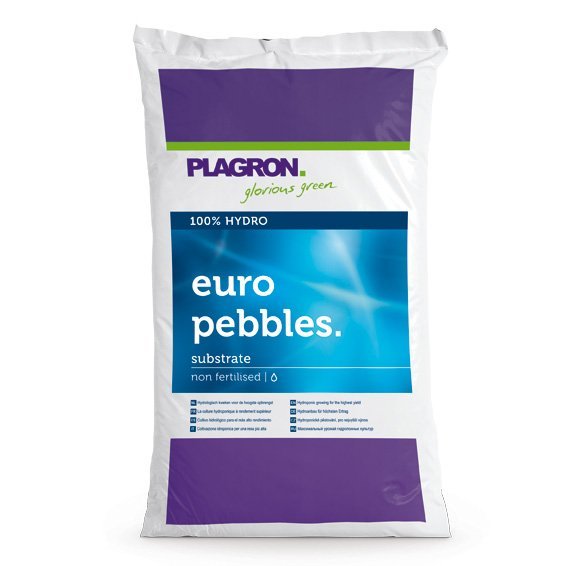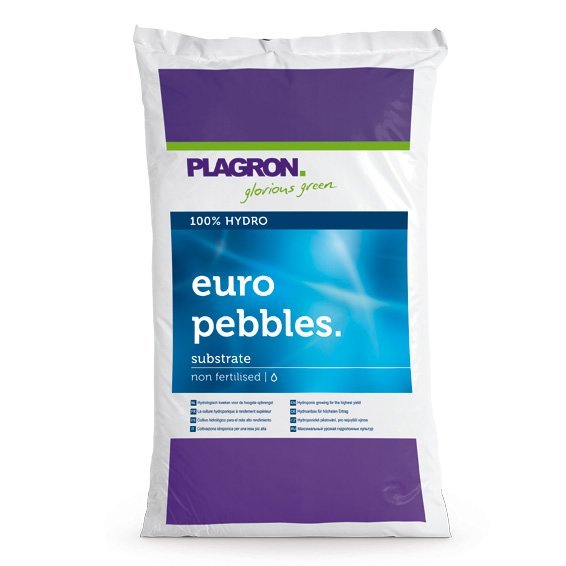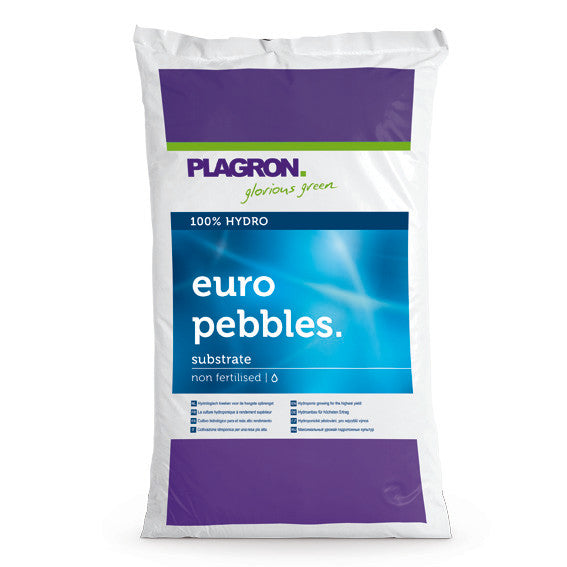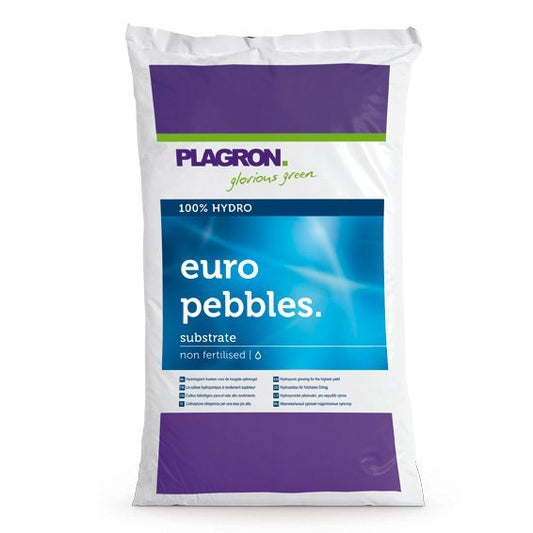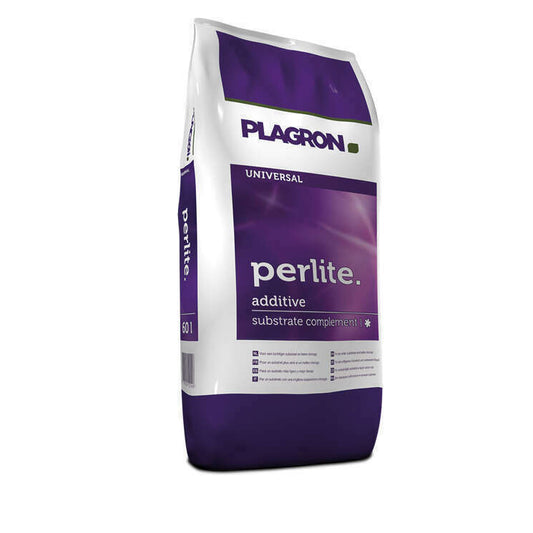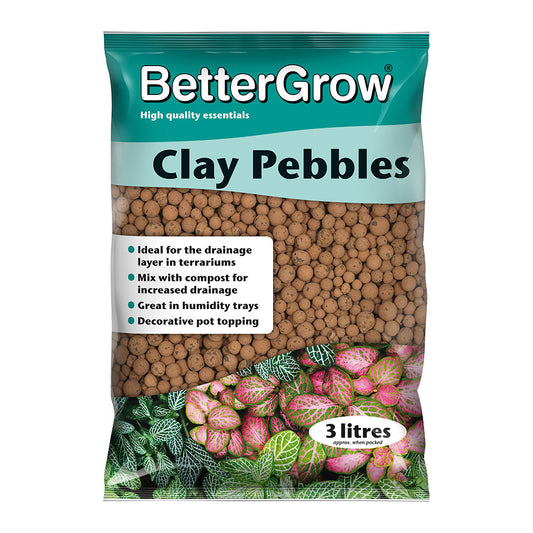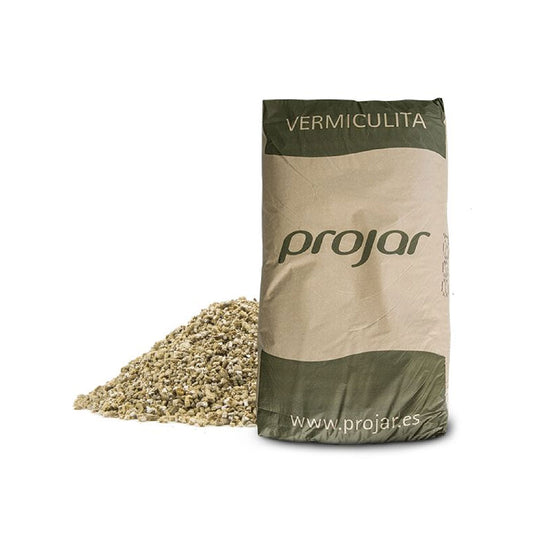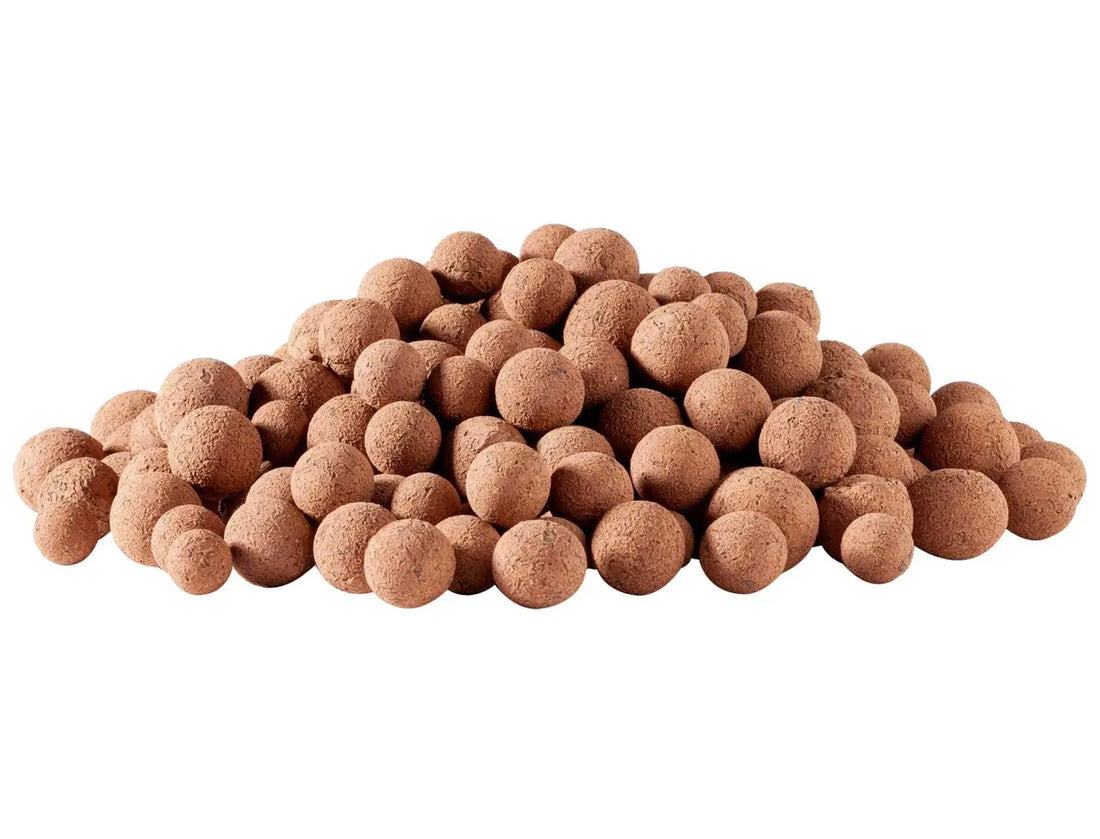
Expanded clay (LECA) – what it is and how to use it in gardening
What is expanded clay?
Expanded clay (also known as expanded clay or LECA for Lightweight Expanded Clay Aggregate ) is a lightweight, porous granule made from baked natural clay. At very high temperatures, the clay expands like popcorn and forms small round pellets. The resulting expanded clay has a neutral pH and is completely inert – it does not contain nutrients or release chemicals into the soil. Due to its porous structure, these clay pebbles retain little water and a lot of air, which provides excellent aeration for plant roots. Expanded clay is widely used as a substrate in gardening and hydroponics, as it combines lightness, drainage and the possibility of repeated use.
Benefits of expanded clay for your plants
✅ Neutral pH and clean composition: Expanded clay does not change the acidity of the soil and does not introduce unwanted substances. This makes it ideal for sensitive plants - the substrate is clean , free of pathogens and weed seeds.
✅ Excellent drainage: The clay granules do not stick together and leave spaces between them for water and air. Excess water drains easily through the expanded clay, which protects the roots from rotting. At the same time, the pebbles retain some moisture on their surface - enough to maintain a slight humidity, but without waterlogging the soil.
✅ Good root aeration: The porous structure ensures that the root system receives enough oxygen. The roots can "breathe" freely, which stimulates healthier growth. Plants grown with added expanded clay often develop a strong root system thanks to the improved aeration.
✅ Lightweight and easy to work with: Although it is associated with stone, expanded clay is an extremely lightweight material. It is easy to carry, mix and add to pots. This makes it easier to transplant and manipulate large pots, as it does not weigh them down excessively.
✅ Reusable: One of the big advantages – you can use expanded clay over and over again. After a season or after you harvest, the granules can be washed and disinfected (for example, soaking in a solution of hydrogen peroxide), after which they are ready for reuse. Thus, the investment in this substrate pays off for years.
✅ Versatility: Suitable for both professional gardeners and amateurs. Can be used both on its own (in hydroponic systems) and as an additive to soil or other substrates. Compatible with various types of plants – from houseplants and orchids to vegetable seedlings.
Expanded clay in pots and garden containers
Using expanded clay in pots is one of the easiest ways to improve the environment for your plants. Here are a few practical uses:
✅ Drainage layer at the bottom of the pot: Pour a 2-5 cm layer of expanded clay at the bottom of the pot before adding soil. This layer acts as drainage - excess water flows between the granules and does not remain around the roots. This way, the roots will not rot from excessive water, and they will also have access to more oxygen from below. This is especially useful for plants sensitive to overwatering.
✅ Mixing with soil: You can mix expanded clay directly into the soil mixture. A typical ratio is about 1 part expanded clay to 2-3 parts soil (approximately 30% expanded clay). This makes the soil looser and allows air to circulate better around the roots. Drainage is significantly improved, which is valuable when growing flowers and vegetables in containers.
✅ Mulching with expanded clay: You can spread a thin layer of clay pebbles on the surface of the soil in the pot. This gives an aesthetic appearance, but also helps retain moisture in the soil below, prevents the formation of a crust on the soil surface, and maintains a more even temperature in the root zone.
Tip: Always rinse expanded clay thoroughly before first use. During transportation, the granules release fine dust. Rinsing removes dust and reduces turbidity, especially important in hydroponics. Some gardeners soak expanded clay for several hours (or overnight) in water before use to saturate it with moisture - this way it does not draw excessive water from the soil.
Clay for orchids
Growing orchids often requires a special substrate that provides plenty of air to the roots. Many orchids (such as Phalaenopsis) grow attached to the bark of trees in their natural environment, so their roots like to be airy, not buried in dense soil. Expanded clay is successfully used with orchids because it provides exactly the airiness and drainage that epiphytic plants need. Here's how it can be used:
✅ Pure expanded clay (semi-aquatic culture): Some orchid enthusiasts practice growing in a completely expanded clay substrate. The method is known as semi-hydroponics - the orchid is planted in a transparent pot filled with washed expanded clay, and a small reservoir of water is left at the bottom. The clay pellets draw moisture up through capillary action, keeping the roots moist but accessible to air. This reduces the risk of rot and makes care easier, as watering is reduced to topping up the reservoir periodically.
✅ Mixed substrate: More often, expanded clay is combined with other components for orchids - for example, wood bark, coconut chips, sphagnum moss. Adding 10-30% expanded clay to the orchid mixture improves aeration and prevents excessive water retention. BetterGrow Clay Pebbles (special expanded clay for orchids) is an excellent choice that can be mixed with bark and perlite. The presence of expanded clay in the substrate contributes to excellent airiness around the roots and reduces the risk of fungus and root rot.
✅ Drainage and support: If you are growing an orchid in a glass vase or pot without drainage holes (the “aquaculture” method or decoration), a layer of expanded clay on the bottom helps drain excess water and serves as support for the plant. When growing in a classic pot with holes, you can again put expanded clay on the bottom to ensure water drainage when watering.
Why do orchids love expanded clay? It is neutral and does not contain salts that would burn delicate roots. It also does not decompose over time (unlike bark), so it provides a stable environment. It is easy to sterilize if necessary - you can boil or soak used expanded clay in disinfectant to kill any pathogens before reuse.
(In our catalog you will find specially developed expanded clay for orchids BetterGrow Clay Pebbles , which is medium-grained (8–16 mm) and ideal for indoor orchids.)
Keramzite in hydroponics
One of the most popular uses of expanded clay is in hydroponic systems – growing plants without soil, only in a nutrient solution. Clay pebbles are the preferred substrate in many recirculating hydroponics systems (such as Flood and Drain , Drip systems) for several reasons:
✅ Inert and safe: Expanded clay does not release anything into the water – it neither changes the pH nor adds organic particles. This means complete control over the nutrient solution. For example, Plagron Euro Pebbles is a high-quality expanded clay that comes pre-washed and pH-neutral, ready for hydroponics. (The manufacturer does recommend a quick rinse before use to remove dust from shipping.)
✅ No system clogging: Because the granules are solid and do not disintegrate, they will not clog pumps, drippers, or pipes. Unlike soil or coco, which can leak and clog the system, expanded clay stays in place and water circulates freely around it. This makes hydroponic system maintenance easier and hassle-free.
✅ Sufficient moisture retention: While it provides excellent drainage, expanded clay still retains a small amount of water in its pores. When the solution is recirculated, the granules become wet and can keep the roots moist between watering cycles. Of course, compared to coco or other substrates, expanded clay holds less water, so in hydroponics it is usually watered more often (or constantly circulate the solution).
✅ Reusable and economical: In large hydroponic farms, expanded clay pellets are washed and sterilized after each harvest and reused. This saves money on buying new substrate and reduces waste. Quality expanded clay (such as the aforementioned Plagron Euro Pebbles) can withstand multiple growing cycles without breaking down.
A comparison between expanded clay, perlite and coconut substrate?
You will also find other popular substrates on the market, such as perlite and coco coir , which also improve drainage and aeration. Which one you choose depends on your specific needs. Here is a quick comparison of the three:
| Characteristics | Expanded clay | Perlite | Coconut substrate |
|---|---|---|---|
| Origin | Natural clay baked to expand (clay granules). | Volcanic rock (obsidian) heated to expansion (white porous grains). | Organic coconut shell fibers (processed and pressed into soil). |
| Weight | Light, but heavier than perlite. The granules are hard and do not compress. | Extremely light – “floats” in the soil. Very loose, can be moved easily. | Light fibers, slightly heavier than perlite, especially when wet. When dry it is very light and fluffy. |
| Water retention | Low to medium – holds some water on its surface, most of it drains away. Does not keep the soil moist for long. | Low – retains water in its micropores, but mainly serves as ventilation. Dries quickly if not mixed with other components. | High – coconut fiber holds a lot of water (almost like a sponge), but also remains breathable. It retains moisture for a longer time. |
| Root aeration | Excellent – large spaces between granules provide plenty of air. Ideal against soil compaction. | Excellent – perlite makes the soil mixture fluffy and permeable. However, over time it can settle slightly or crumble. | Very good – coconut substrate retains about 20% air even when saturated with water. Prevents overmoistening to some extent. |
| Nutrients | It has no own – absolutely inert. Plants rely on added fertilizers in the solution or soil. | It has no properties of its own – inert. It is often added to nutrient-rich soils to loosen and aerate them. | It has no significant nutrients of its own (it may have trace amounts of potassium). It usually comes buffered , which means it has been processed to remove excess salts. |
| pH reaction | Neutral pH (~7.0). Does not change the acidity of the environment. | Neutral to slightly alkaline (typically ~7.0 – 7.5). Usually does not significantly affect the pH of the soil mixture. | Close to neutral (5.5 – 6.5 for buffered coconut). Coconut itself is slightly acidic, but buffering stabilizes it within neutral limits. |
| Degradation over time | It does not break down; it can be used repeatedly for years. | It is not biodegradable, but the granules can be mechanically broken down after repeated wetting/drying – reuse is not so easy. | It is organic – over time (after 1-2 years) the fibers begin to break down. Typically, coconut substrate can be used for 2-3 harvests before it needs to be replaced. |
| Suitable for | Hydroponics, drainage layer in pots, soil mixture for cacti, succulents, palms, etc. plants sensitive to overwatering. Also for orchids (alone or in a mixture). | A soil mixture for almost all types of plants – flowers, vegetables, seedlings. Excellent for seed germination and rooting cuttings (fine perlite). Not used alone for growing as it retains too little water. | A completely self-contained substrate for growing plants instead of soil (coconut is often used instead of peat in gardening). Ideal for sowing and seedlings , for hydroponics (especially in combination with perlite). Suitable for almost all plants, including capricious species, as it imitates soil, but is sterile and aerated. |
You can see all the inert substrates in the Gradinar store and choose the most suitable one for you.
